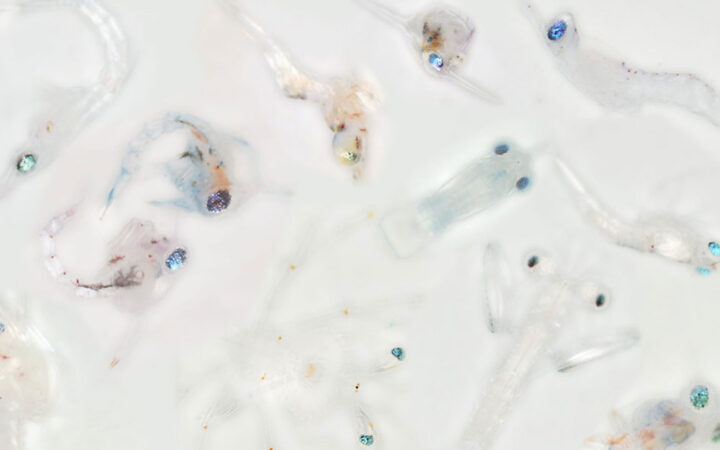
Eight silver and gold tubes held in a Russian museum have long been thought to have been either ceremonial staffs or canopy supports. In reality, the long tubes are the oldest surviving drinking straws, researchers say.
People used these high-end straws to drink beer from a communal vessel more than 5,000 years ago, conclude archaeologist Viktor Trifonov of the Russian Academy of Sciences in St. Petersburg and colleagues. Excavations in 1897 in what’s now Armenia uncovered the metal tubes, jewelry and other goods in a burial mound containing three individuals from the Maikop culture, which dates to between about 5,700 and 4,900 years ago (SN: 6/7/30).
Each slender tube extends for just over one meter. Four of the finds include a gold or silver bull figurine, punctured by a hole so that it could be slid up and down the tube. Meanings attributed to straws with or without figurines are unknown, Trifonov’s group says.
Different gold and silver components such as those shown here, including a perforated tip (far left), were forged and probably soldered into long tubes that served as drinking straws in the ancient Maikop culture, scientists say.V. Trifonov, D. Petrov and L. Savelieva/Antiquity 2022
Residue from the inner surface of one tube, near its tapered tip, contains barley starch granules, cereal particles from a wild or domesticated plant and a pollen grain from a lime tree, the scientists report in the February Antiquity. Those may have been ingredients of a flavored beer, though further work needs to confirm that the barley remains show fermentation damage (SN: 5/7/20).
Maikop people, who inhabited southern Russia and southeastern Europe, probably had cultural ties to Sumerians living near the Persian Gulf, the researchers say. More than 4,000-year-old Sumerian carvings show people using long straws to drink from communal vessels.
Beer brewing began as early as around 13,000 years ago in the Middle East. And seal impressions on clay tablets dating to roughly 7,000 years ago in Iraq and Iran depict people drinking with straws.

 A new treatment could restore some mobility in people paralyzed by strokes
A new treatment could restore some mobility in people paralyzed by strokes  What has Perseverance found in two years on Mars?
What has Perseverance found in two years on Mars?  This robot automatically tucks its limbs to squeeze through spaces
This robot automatically tucks its limbs to squeeze through spaces  Greta Thunberg’s new book urges the world to take climate action now
Greta Thunberg’s new book urges the world to take climate action now  Glassy eyes may help young crustaceans hide from predators in plain sight
Glassy eyes may help young crustaceans hide from predators in plain sight  A chemical imbalance doesn’t explain depression. So what does?
A chemical imbalance doesn’t explain depression. So what does?